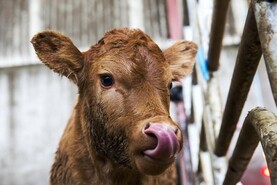Minister for Agriculture Charlie McConalogue expects farmers to pick exporting slurry as their first choice to try to offset the impact of the cut to the nitrates derogation.
“Dropping from 250kg to 220kg has real challenges in terms of stocking capacity, obviously anyone that can and who has the option, slurry exports will be the first choice, I’ve no doubt.
"That’s much more challenging in some parts of the country. I’ve put in place the slurry importation grant to try to support that for next year,” he said.
Speaking from the floor, Wexford-based dairy farmer Liam Shiely challenged the Minister on how he can stand over the cut to the derogation on animal welfare grounds, saying that 13% of pregnant cows now need to be culled.
In response, the Minister said it’s up to each individual farmer work out what’s best for them.
Challenge
"Outside of [exporting slurry] it’s a matter for each individual farm to look at. This is the challenge facing us now since the derogation was renewed last year and the risk over what might happen this summer and then what did happen and the challenge around that.
"I’ve been working to give as much clarity as possible over that time, but it comes down to individual farm level, but it’s not an easy decision for those above 220kg,” he told those at the Teagasc National Dairy Conference on Wednesday.
The Minister said that during last week's visit of the European Commissioner for the Environment Virginijus Sinkevicius, the Commissioner stated that Ireland would need to have at least stable water quality to ensure a nitrates derogation in the future.
“It’s critical that everyone across the agri-food industry focuses on improving water quality to strengthen our case for the renewal of the derogation in 2026,” he said.
He said he is seeking approval from the European Commission for a separate €90,000 investment ceiling in TAMS for slurry storage, along with seeking approval for a nutrient importation support scheme providing 70% grant provision for organic manure.






 This is a subscriber-only article
This is a subscriber-only article










SHARING OPTIONS: